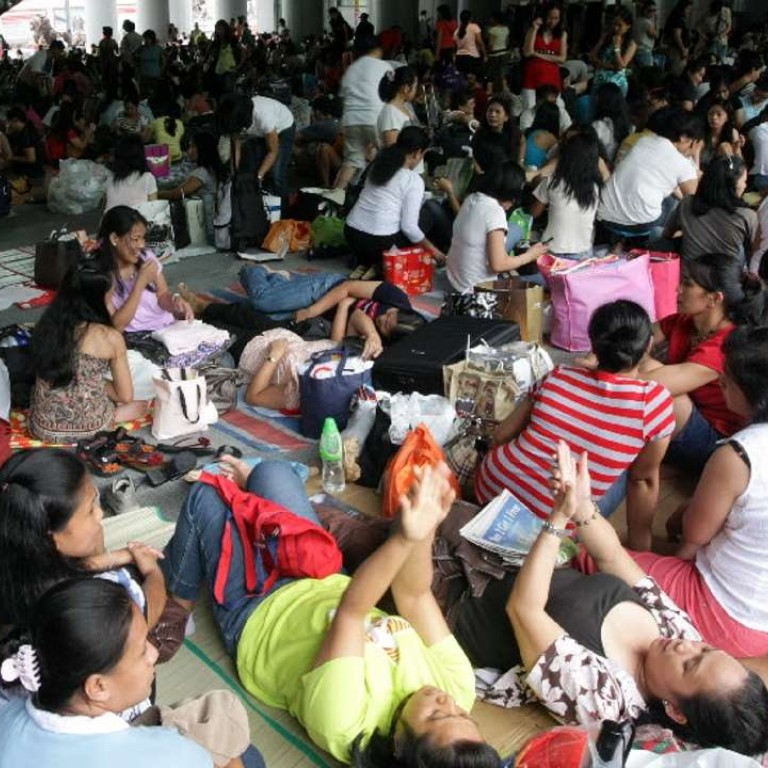
Licence suspended: major Hong Kong agency for foreign domestic workers probed
Complaints concern alleged HK$10,000 charge for bogus jobs overseas
A major recruiter of domestic helpers in Hong Kong has had its licence suspended while it is investigated by the Philippine Overseas Labour Office.
Jalilo Dela Torre, labour attache for the Philippine Overseas Labour Office, said the move came after complaints were made about Emry’s Employment Agency.
He said the complaints related to the agency allegedly charging foreign domestic workers HK$10,000 each to apply for bogus jobs in the UK and Canada.
Dela Torre said 200 helpers had so far come forward to the labour office to report alleged malpractice by the agency. He said eight workers had been offered refunds by the agency.
He said the agency’s licence was suspended for three alleged breaches – advertising fake jobs; offering third-party deployment and charging domestic helpers more than 10 per cent of their first month’s salary to sign up for its services.
“We have suspended the licence and the Hong Kong government is investigating,” he said. “We have recommended the cancellation of the licence. They were engaging in third-party recruitment in the UK and Canada.”
Neither Emry’s Employment Agency nor owner Ester Ylagan have responded to repeated requests for comment from the Post.
A solicitor representing Ylagan has also failed to respond to inquiries from the Post.
A Labour Department spokesman said it had initiated investigations upon receipt of complaints but did not comment on specific investigations.
Emry’s can no longer process domestic helper contracts while its licence is suspended.
Scott Stiles, co-founder of not-for-profit recruiter Fair Employment Agency, said the move reflected improved collaboration between employers, governments and the NGO community.
“It’s an important step for both the Philippine consulate and the Hong Kong government. We really believe that enforcement of the existing laws can solve the biggest problems faced by both employers and workers. We are hopeful to continue seeing increased enforcement of the existing laws,” he said.
There are between 1,200 and 1,300 domestic helper agencies in the city, only a small proportion of which are accredited, although campaigners say accreditation does not necessarily ensure best practice.
Last year, the Labour Department conducted 1,348 inspections of domestic helper agencies, but only revoked four licences.
Stiles said there needed to be greater pressure applied to the Filipino and Indonesian authorities rather than Hong Kong officials in order to resolve employment disputes.
“As the Philippine and Indonesian consulates accredit agencies who deploy workers, they have the authority to remove this accreditation,” he said.
Holly Allan, executive director of Helpers for Domestic Helpers, said her group would continue to push for an extension of the time frame when affected workers may file claims at court from six months to at least one year.

